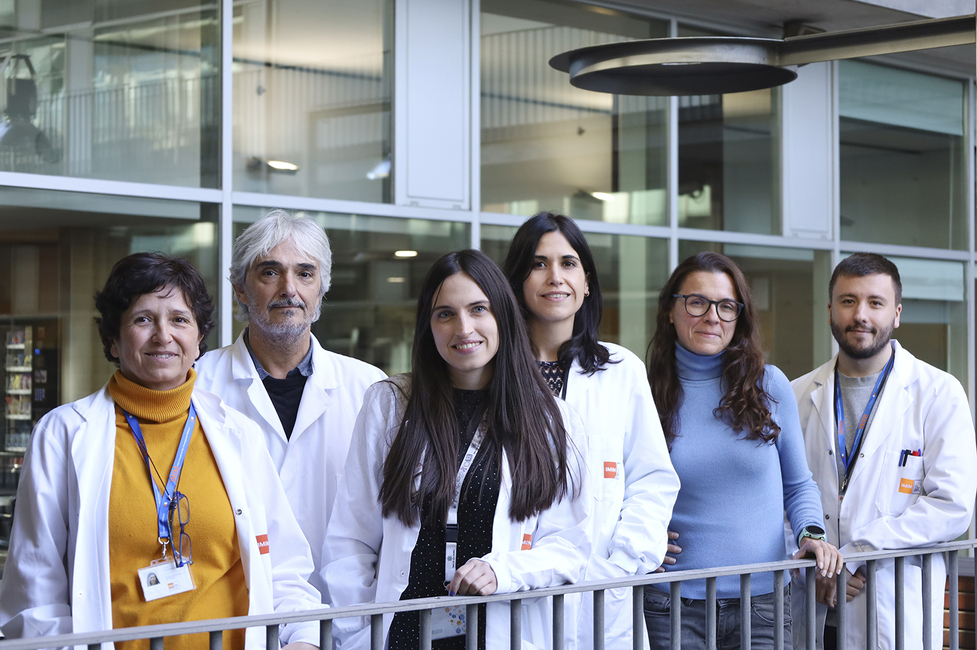Pathway identified for overcoming treatment resistance in a particular type of leukemia
A study led Dr. Anna Bigas, Principal Investigator of the Stem Cell and Cancer Research Group at the Josep Carreras Leukaemia Research Institute and the Hospital del Mar Medical Research Institute, has revealed the key role a protein plays in identifying patients with T-cell acute lymphoblastic leukemia who will not respond to standard treatment

Combining chemotherapy with beta-catenin protein inhibitors in an animal model eliminates treatment resistance in T-cell acute lymphoblastic leukemia, a rare disease that mainly affects pediatric patients. This has been demonstrated by a study published in the journal EMBO Molecular Medicine that was led by researchers from the Josep Carreras Leukaemia Research Institute (IJC) and the Hospital del Mar Medical Research Institute (IMIM-Hospital del Mar), which also confirmed that the action of this protein can be used to determine which patients will respond to the conventional treatment and which will not.
The researchers used patient samples to corroborate the results obtained with a mouse model. The study confirms the decisive role of beta-catenin in the development of leukemia, due to its action on certain genes in the cells involved. In total, they identified 79 genes that are implicated, although further research is needed to pinpoint which of these are the most important predictors of treatment resistance.
"What this gene signature indicates is which patients have a greater probability of not responding to chemotherapy", explained Dr. Anna Bigas, coordinator of the research group at IJC and IMIM-Hospital del Mar, main author of the study and scientific director of the CIBER on Cancer (CIBERONC). Given this fact, "What we propose is that if we combine chemotherapy with inhibitors of the beta-catenin protein, what we achieve is a better response to chemotherapy", adds Dr. Bigas. The findings from animal models show that this combination makes treatment-refractory cases respond to therapy. An approach that researchers believe may also facilitate the successful treatment of leukemia in patients who do respond to medication. Incidentally, several beta-catenin inhibitors are already under study for the treatment of other tumors.
Diagnostic indicator
T-cell acute lymphoblastic leukemia is more common in children. Among these patients the survival rate is quite high, at 80-90%. However, in adult cases this drops to 50%. Specifically, this latest study may help to indicate a patient's treatment response, as explained by Dr. Bigas. "One of the things we are doing now is looking at which of these genes are the most decisive, the most informative, and to see whether reducing this gene signature might be used to inform the diagnosis of a patient's response to conventional chemotherapy."
The researchers will now begin studies with cells from human patients in mice. If their conclusions and the safety of this approach are validated, a clinical trial in humans combining chemotherapy and beta-catenin inhibitors will be considered.
Dr. Antonio Salar, head of the Hematology Department at Hospital del Mar, considers that "The findings of the study are very promising for this type of leukemia, which is rare in adults and in need of new and more effective therapeutic strategies." For this reason, he points out that "As clinical hematologists, we hope that the next stage of the research will be successful and that we can move on to the research phase involving patients."
Researchers from Hospital Sant Joan de Déu in Barcelona also collaborated in this work.
Reference article
Violeta García-Hernández, David Arambilet, Yolanda Guillén, Teresa Lobo-Jarne, Christos Gekas, Nerea Vega-García, Inés Sentis, Juan Luis Trincado, Ian Márquez-López, Holger Heyn, Mireia Camos, Lluis Espinosa, Anna Bigas. β-catenin activity induces an RNA biosynthesis program promoting therapy resistance in T Acute Lymphoblastic Leukemia. EMBO Mol Med (2023)e16554 https://doi.org/10.15252/emmm.202216554